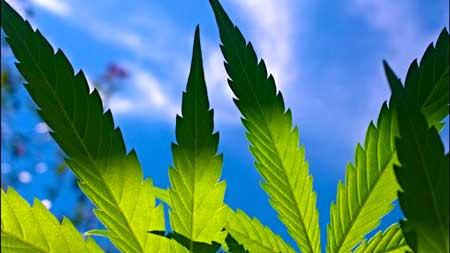This is an article in today's New York Times:
A Psychedelic Drug Passes Big Test for PTSD Treatment
In an important step toward medical approval, MDMA, the illegal drug popularly known as Ecstasy or Molly, was shown to
bring relief to those suffering from severe post-traumatic stress disorder when paired with talk therapy.
Of the 90 people who took part in the new study, which is expected to be published later this month in Nature Medicine,
those who received MDMA during therapy experienced a significantly greater reduction in the severity of their symptoms
compared with those who received therapy and an inactive placebo. Two months after treatment, 67 percent of participants
in the MDMA group no longer qualified for a diagnosis of PTSD, compared with 32 percent in the placebo group.
MDMA produced no serious adverse side effects. Some participants temporarily experienced mild symptoms like nausea
and loss of appetite.
“This is about as excited as I can get about a clinical trial,” said Gul Dolen, a neuroscientist at Johns Hopkins University
School of Medicine, who was not involved in the research. “There is nothing like this in clinical trial results for a
neuropsychiatric disease.”
Before MDMA-assisted therapy can be approved for therapeutic use, the Food and Drug Administration needs a second
positive Phase 3 trial, which is currently underway with 100 participants. Approval could come as early as 2023.
Mental health experts say that this research — the first Phase 3 trial conducted on psychedelic-assisted therapy — could
pave the way for further studies on MDMA’s potential to help address other difficult-to-treat mental health conditions,
including substance abuse, obsessive compulsive disorder, phobias, eating disorders, depression, end-of-life anxiety and
social anxiety in autistic adults.
And, mental health researchers say, these studies could also encourage additional research on other banned psychedelics,
including psilocybin, LSD and mescaline.
“This is a wonderful, fruitful time for discovery, because people are suddenly willing to consider these substances as
therapeutics again, which hasn’t happened in 50 years,” said Jennifer Mitchell, a neuroscientist at the University of
California, San Francisco, and lead author of the new study.
A Psychedelic Drug Passes Big Test for PTSD Treatment
In an important step toward medical approval, MDMA, the illegal drug popularly known as Ecstasy or Molly, was shown to
bring relief to those suffering from severe post-traumatic stress disorder when paired with talk therapy.
Of the 90 people who took part in the new study, which is expected to be published later this month in Nature Medicine,
those who received MDMA during therapy experienced a significantly greater reduction in the severity of their symptoms
compared with those who received therapy and an inactive placebo. Two months after treatment, 67 percent of participants
in the MDMA group no longer qualified for a diagnosis of PTSD, compared with 32 percent in the placebo group.
MDMA produced no serious adverse side effects. Some participants temporarily experienced mild symptoms like nausea
and loss of appetite.
“This is about as excited as I can get about a clinical trial,” said Gul Dolen, a neuroscientist at Johns Hopkins University
School of Medicine, who was not involved in the research. “There is nothing like this in clinical trial results for a
neuropsychiatric disease.”
Before MDMA-assisted therapy can be approved for therapeutic use, the Food and Drug Administration needs a second
positive Phase 3 trial, which is currently underway with 100 participants. Approval could come as early as 2023.
Mental health experts say that this research — the first Phase 3 trial conducted on psychedelic-assisted therapy — could
pave the way for further studies on MDMA’s potential to help address other difficult-to-treat mental health conditions,
including substance abuse, obsessive compulsive disorder, phobias, eating disorders, depression, end-of-life anxiety and
social anxiety in autistic adults.
And, mental health researchers say, these studies could also encourage additional research on other banned psychedelics,
including psilocybin, LSD and mescaline.
“This is a wonderful, fruitful time for discovery, because people are suddenly willing to consider these substances as
therapeutics again, which hasn’t happened in 50 years,” said Jennifer Mitchell, a neuroscientist at the University of
California, San Francisco, and lead author of the new study.


Comment